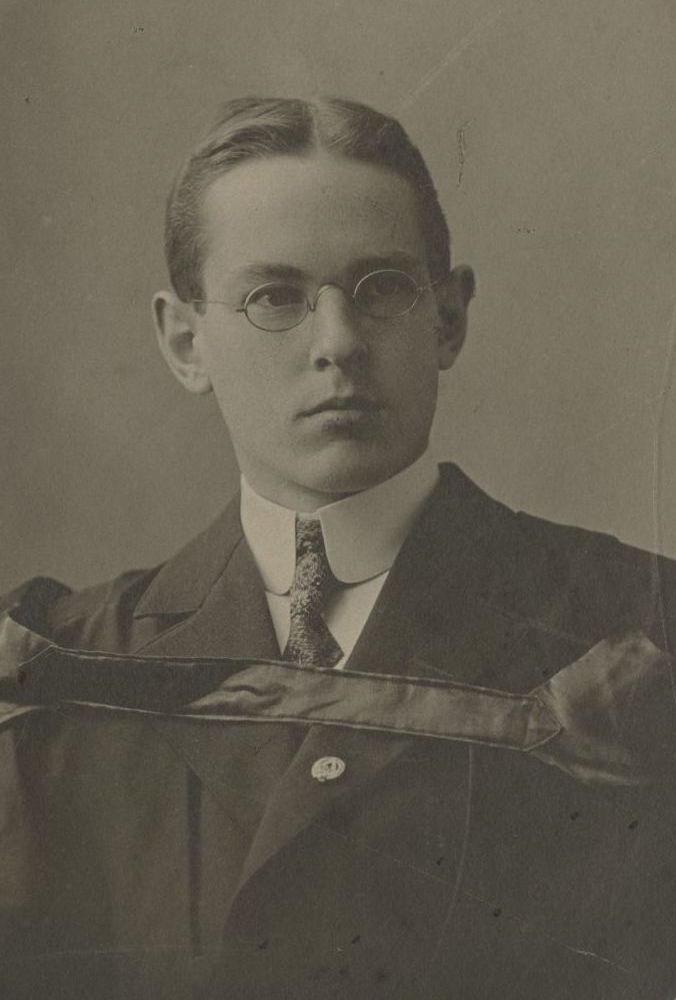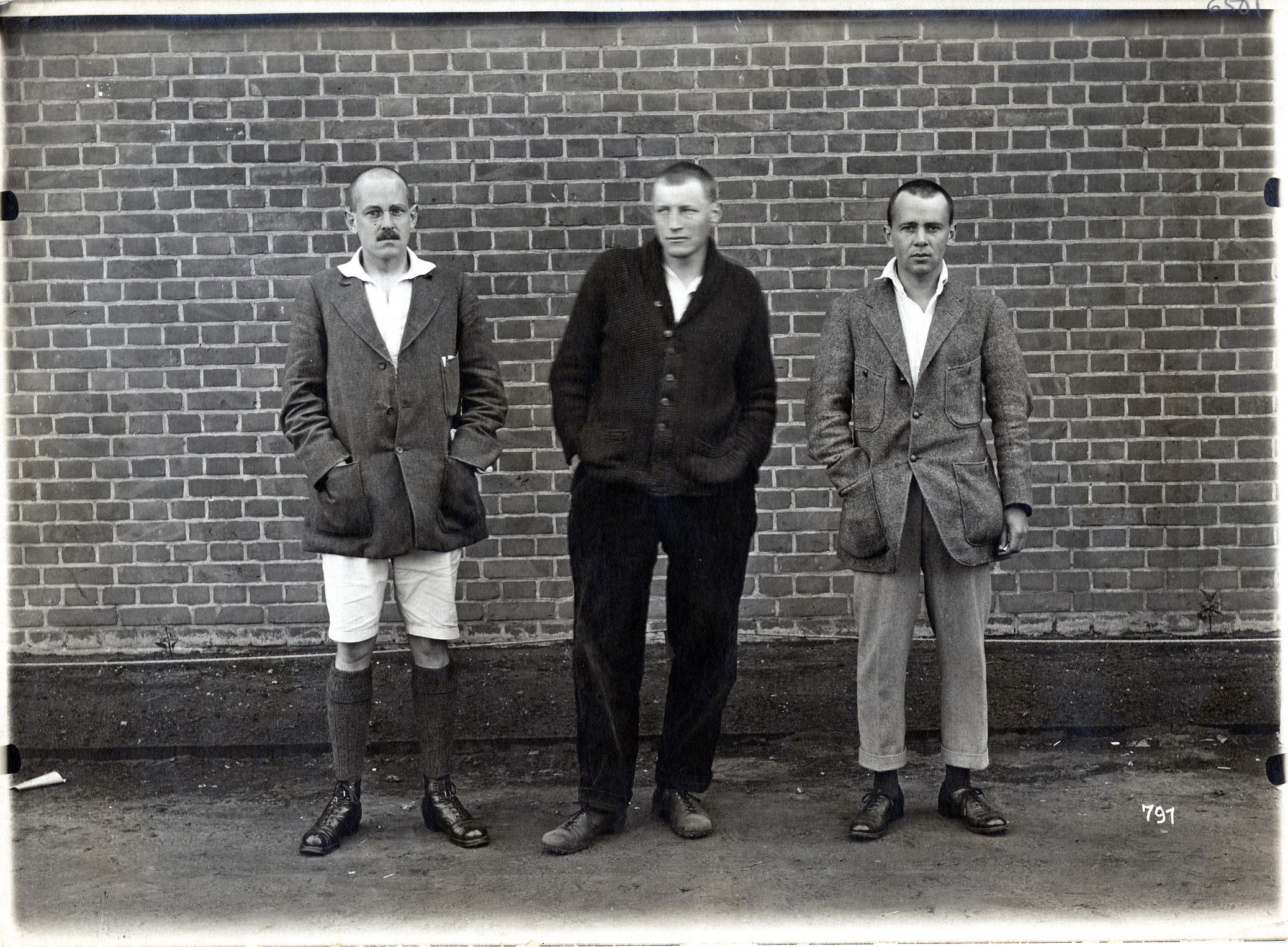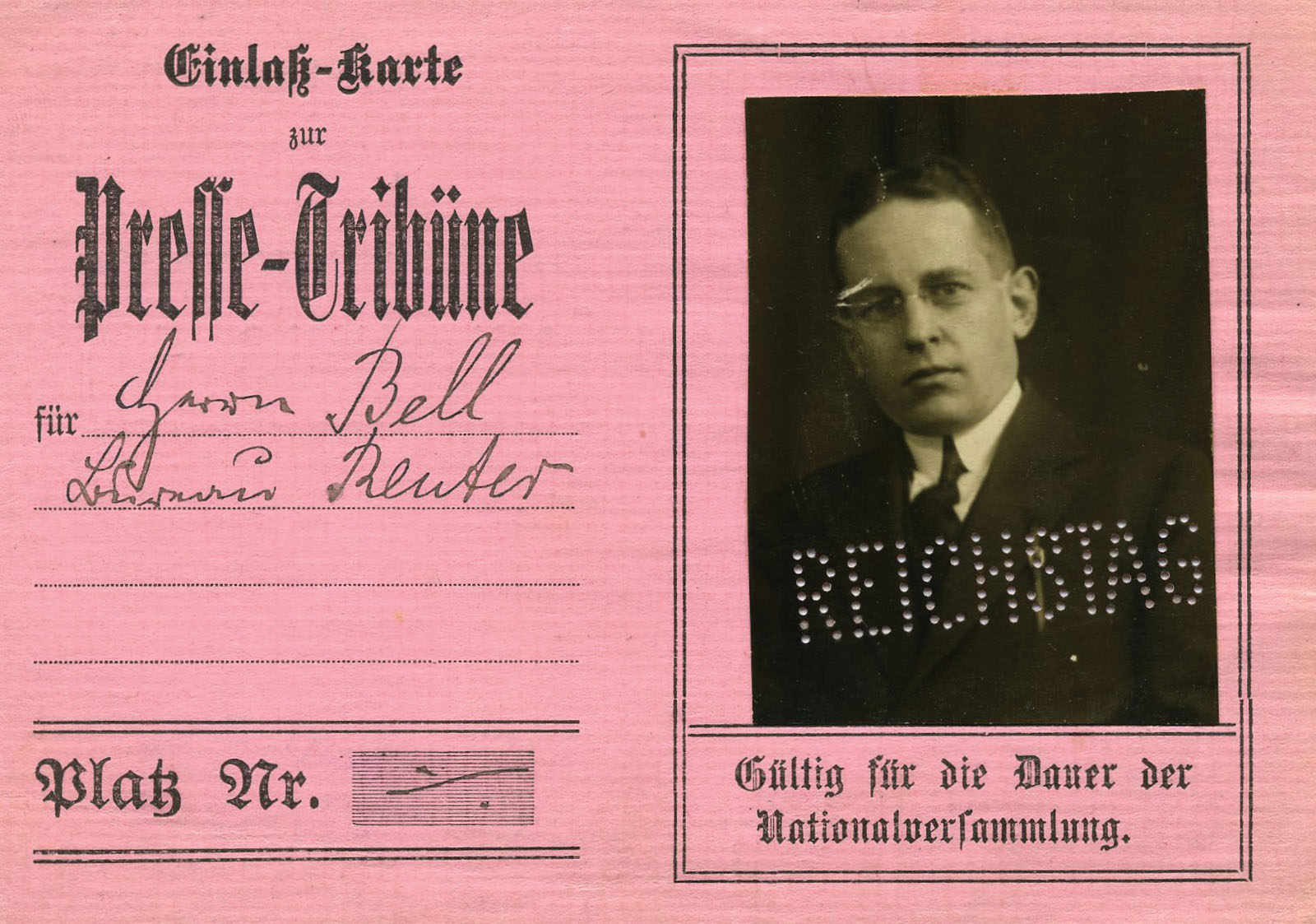An unsung hero
While many Mount Allison alumni have left their mark on history, some have quietly reshaped the world in ways that have mostly stayed hidden from view.
Shedding light on one such unknown story is a new book by UNB professor Dr. Jason Bell.
Cracking the Nazi Code: The Untold Story of Canada’s Greatest Spy tells the remarkable story of Winthrop Pickard Bell, who wrote the first warning of the Nazi plot for the Second World War — in 1919.

Born in Halifax, NS in 1884, Pickard Bell had deep roots at Mount Allison. His grandfather, Rev. Humphrey Pickard, was the first President of the University, while his brother Ralph Pickard Bell (1907) went on to become its first Chancellor.
Pickard Bell completed his Bachelor of Arts and Master of Arts at Mount Allison University, followed by a Master of Philosophy at Harvard University, before enrolling at Cambridge University in England. He relocated to Germany in 1910 to embark on doctoral studies at Göttingen University under the guidance of Professor Edmund Husserl, a leading figure in the German phenomenological movement.
Pickard Bell was on the verge of completing his doctorate when the First World War erupted in 1914. He was arrested and sent to Ruhleben, an internment camp for British civilians, where he remained for the duration of the war. To compound his misfortune, his doctorate was withdrawn. But missed opportunities can sometimes lead to unexpected outcomes.
“For Britain’s future anti-Nazi intelligence agents, Ruhleben was a four-year espionage training camp, paid for by the German government,” writes Bell.

Upon his release from Ruhleben, Pickard Bell returned to London, where he met with Canadian Prime Minister Sir Robert Borden. Bell shared his thoughts on the post-war situation in Germany, proposing a plan to foster better relations between Germany and the Allied nations, hoping to prevent what he saw as the gravest and most probable outcome: that Germany’s militant nationalists, who were already plotting a race war, would gain control of the country.
Borden recognized the potential of Pickard Bell’s intimate knowledge of Germany and made introductions.
Pickard Bell became Britain’s newest secret agent. Assigned the agent identity A12 by MI6, Pickard Bell adopted the cover story of a Reuters reporter in Germany. In fact, he was both. His dispatches to MI6 were published in English-language newspapers in Britain and North America.

Returning to Berlin amidst worsening economic situation and widespread social discontent and famine, Pickard Bell tried to warn the Allies of the potential consequences of their inaction. Given Germany’s unfavourable reputation globally, Pickard Bell faced the challenge of convincing others that extending a helping hand was a far better option than allowing it to spiral deeper into destitution, and, potentially, under the control of the extreme right.
This is the focus of Bell’s new book, released by Harper Collins in September 2023.
Bell, who has no familial connections to Pickard Bell, conducted research across archives in Canada, Germany, and the UK, including at the Mount Allison University Archives, which holds Pickard Bell’s papers.
“During my postdoctoral fellowship at Mount Allison, I started reading the intelligence work, and saw the early Nazi warnings, and was astounded,” he says.
But the process of writing this book took nearly a decade.
“It kept pulling me back and required a lot of excavation. Really, a lot of it was confirming my initial suspicion that he was the first to perceive this danger.”
Bell believes Pickard Bell’s education was instrumental in his adept analysis of post-war dynamics.
“I think Mount Allison has a lot to take credit for in having taught him,” he says. “It’s rare to have places like Mount Allison that rigorously expose students to various disciplines, and that’s the kind of skill set Winthrop Bell needed to do intelligence well.”
He also hopes his book will inspire others to delve into Pickard Bell’s papers.
“These archives are crucial,” he says.
Recognizing the support of University Archivist David Mawhinney and his predecessor Rhianna Edwards, Jason Bell will donate 5% of the book’s royalties to the Mount Allison University Archives.


